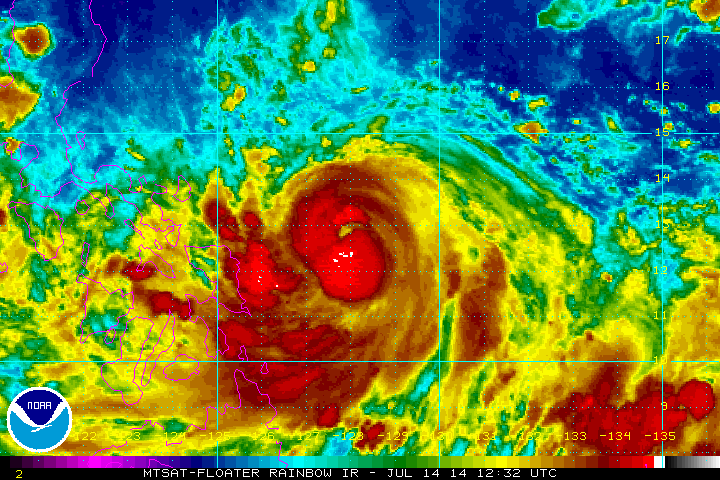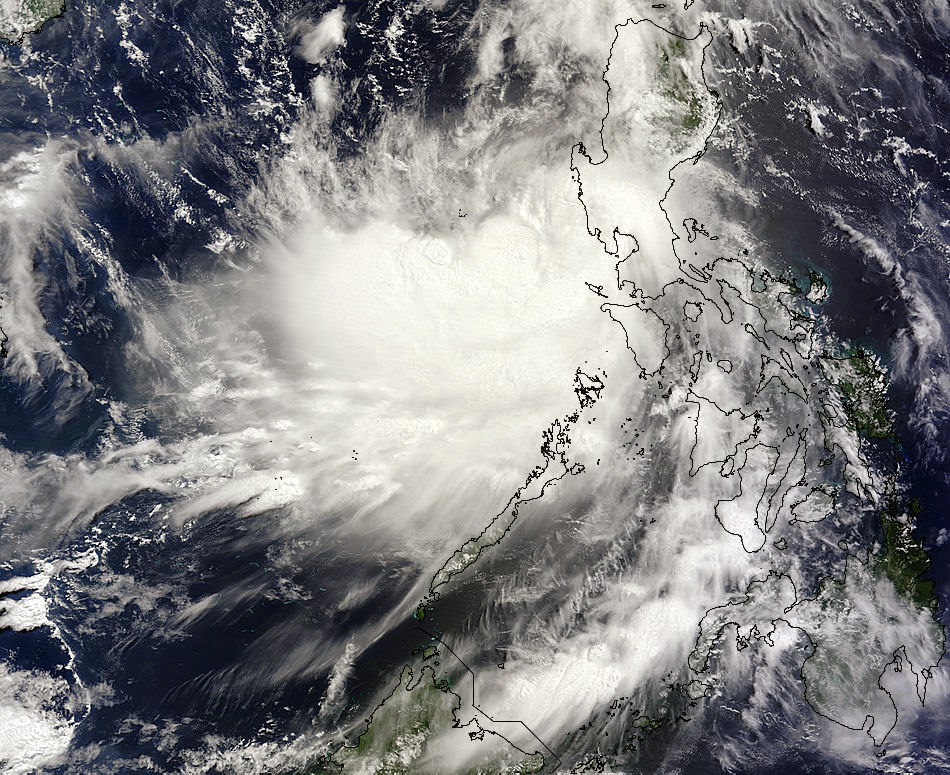Typhoon Rammasun (also known as Glenda) has
killed 20 people in the Philippines.
5 people have also been reported as missing. 460,000 people have been affected
by the typhoon.
The storm gained its tropical depression status
on 10th July and on 12th July it became a tropical storm
and was named Rammasun. On 14th July it gained typhoon status with
winds of over 120 km/h and made landfall on the 15th.
400,000 people were evacuated including 370,000
people in Albay, businesses and schools were also closed and flights cancelled.
The typhoon made landfall over central Philippines
affecting the capital Manila. Rammasun
struck the country with winds of up to 185 km/h.
Thousands on the island
of Luzon are currently without
power. Rammasun has also uprooted trees and electricity poles, overturned vehicles
and has caused damage to numerous homes in the Philippines.
The death
toll is likely to rise as the impact becomes clear over the next few days.
The typhoon is currently heading towards southern
China and Vietnam
at around 25 km/h. It has been downgraded to Category 1 but is predicted to
become a Category 3 typhoon as it heads towards China
and Vietnam.
Forecast track of Typhoon Rammasun (Source: Joint Typhoon Warning Center)
The AIRS instrument aboard NASA's Aqua satellite captured this infrared image of
powerful thunderstorms (purple) from Rammasun over the Philippines on July 15 (Source: NASA)
TRMM satellite passed over Rammasun on July 15 at 12:10 a.m (Source: NASA)
Source: NASA
Source: NASA







No comments:
Post a Comment